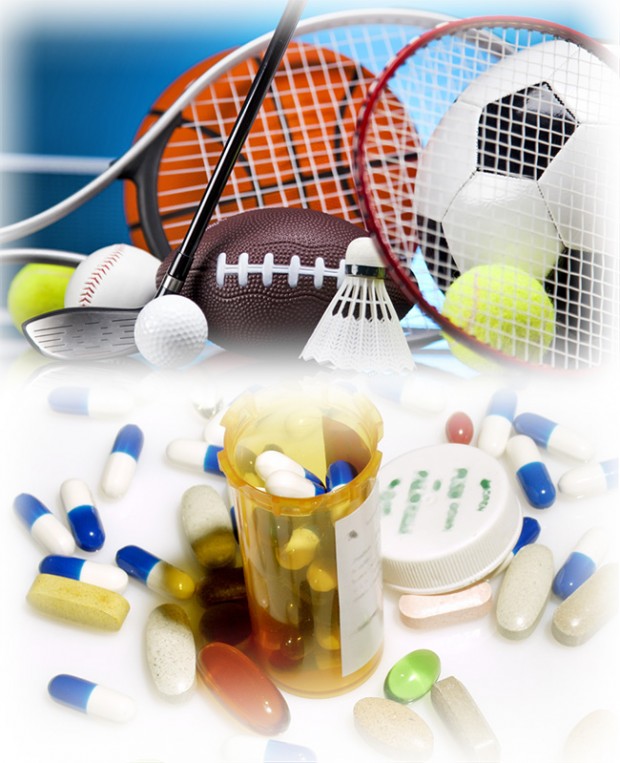1 February 2016 Edition
Beware of the Dark Side
BETWEEN THE POSTS

There is no acceptable level of corruption – no co-existence with cronyism
“THERE ARE no heroes,” said my friend Jackie. His laconic remark was made with customary nonchalance. Clipped from a conversation in a different context years ago, his point has stayed with me. Recalling in detail long-past exchanges is a faculty I inherited from my late mother.
When Star Wars returned to our living room, the heroes had different faces and names but the plot was all too familiar. Miniature figures, light sabres and, of course, the villain. The Dark Side did not hide. At the risk of stating the obvious, life isn’t so straightforward. Neither is sport.
Recently the World Anti-Drugs Association (WADA) published a report on the use of illicit drugs in athletics. Focusing on the unfolding scandal of drug use in Russian sport, WADA described this report as “the tip of the iceberg”. A parallel criminal investigation continues into Lamine Diack, former head of the International Association of Athletics Federations (IAAF). He is alleged to have deferred sanctions against Russian athletes in exchange for pay-offs. But it’s not to individuals alone that the questions are being asked. Mystery surrounds a 23million euro payment to the IAAF from a Russian bank, reported to be in exchange for favourable television rights. The controversy seems set to escalate as a wider, more comprehensive inquiry by WADA into corruption and doping in athletics ensues. It has been reported that some of the results from the London Olympics in 2012 may have to be overturned because among the medal-winners were drug cheats.
Barely a year after London 2012, high-profile track stars like former 100metres world record holder Asafa Powell and three-time Olympic champion Veronica Campbell-Brown failed drug tests. Both are household names in athletics from the hugely successful stable of Jamaican sprinters. During the same period, the reputation of Kenyan athletics has been hurt by evidence of an alarming surge in the number of runners taking banned drugs. More recently, six Nigerian athletes were exposed at the same time. The scandal has reached as far as Alberto Salazar, veteran endurance runner and legendary coach, whose position on doping was last year challenged in a BBC Panorama exposé. Salazar has refuted the allegations against him, but that hasn’t settled the storm. The US Anti-Doping Agency is due to publish its own report in the next few months into allegations of multiple doping by the world-renowned coach. The ramifications are potentially as profound as the report by USADA about cyclist Lance Armstrong. In addition, French police have commenced a forensic audit of bidding and awards of the World Championships in athletics between 2007 and 2021. The inquiry includes the decision-making process which led to the award of the competition to London in 2017. The UK Athletics organisation welcomed the inquiry.
Corruption of a different kind has engulfed international football. The self-styled supremos of the soccer world have fallen like skittles as a massive criminal investigation rolls into the centre of FIFA. The sport some call ‘The Beautiful Game’ has been mired in an ugly entanglement. Gone is the once untouchable Sepp Blatter. Gone is the former star of French soccer, Michel Platini. The offices of FIFA have been raided, their top table has been decimated and the ongoing criminal investigation has yet to reach a conclusion.
And as I write this piece, BBC and BuzzFeedNews have revealed details of a joint investigation into how international crime syndicates have orchestrated match fixing at the top level of world tennis as play begins on day one of the Australian Open.
All this comes at an incongruous time. Athletes are still striving to secure qualifying times for the Olympics in Rio this summer. International soccer teams are finalising training camps for Euro 2016 in France. Whilst the competitions themselves have not (yet) been corrupted, the context has.
The same problem applies to corruption in any walk of life. Once permitted, it spreads like an irrepressible weed. In sport, the corruption under investigation is not limited to competitors and coaches. It potentially involves awards for contracts and regulatory procedures. People who study this phenomenon note that it is not only the individual behaviour of cheats which breeds corruption. More influential is the tone set by authority figures.
Some argue that the clamour for public accountability does more damage than the perpetrators. They claim these are victimless crimes. Yet what does this do to the spirit of sport? How long before amateur sport in Ireland has to confront such problems?
There is no acceptable level of corruption. No co-existence with cronyism. No reconciliation with racketeering. Cheating is not competing. The London 2012 Olympics opened to the anthemic tune by David Bowie: “We could be heroes, if just for one day.” If that is ever to ring true with the spirit of sport, justice must be done and seen to be done.




